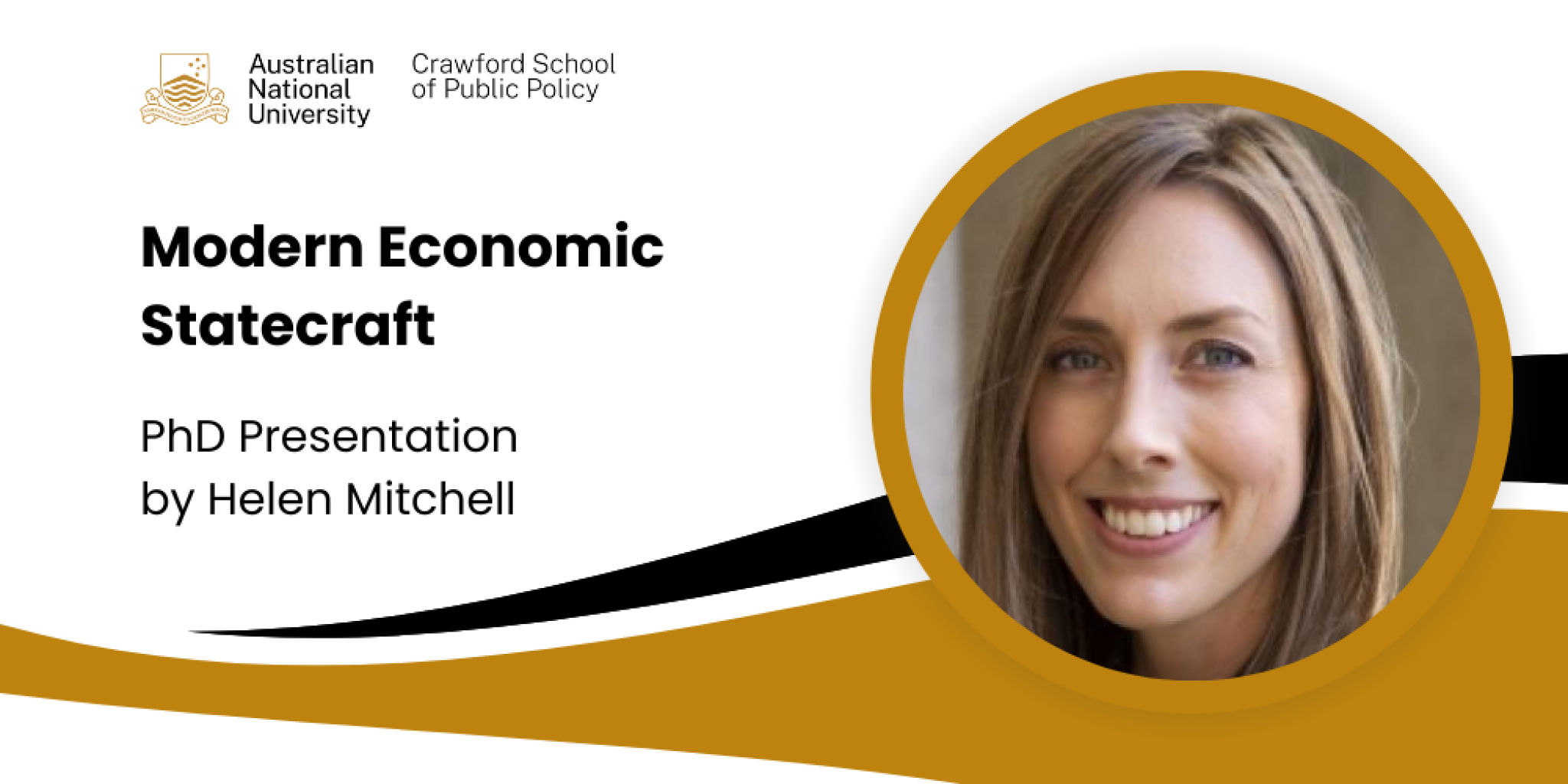This presentation showcases a PhD research project that investigates economic statecraft in an era of historically high levels of global interconnectedness.
Modern Economic Statecraft
Abstract:
This thesis investigates economic statecraft in an era of historically high levels of global interconnectedness. Over the last century, globalisation and technological progress have deepened economic links between states and accelerated the spread of complex forms of international economic activity (like global supply chains). These developments have expanded the range of economic statecraft techniques and made evaluation of their effects more difficult. Economic theories that describe how economic statecraft affect economic activity are needed in combination with insights from other disciplines to understand modern economic statecraft. I respond to a scarcity of such approaches by contributing a modern framework, grounded in economic principles, for investigating economic statecraft. This research introduces a Modern Economic Statecraft (MES) framework — an interdisciplinary approach that integrates economic principles, international relations theory, and network analysis, to comprehensively evaluate the effects of states’ use of economic statecraft.
The MES framework reconceptualises economic statecraft by examining global resource flows — goods, services, people, money, information, and ideas — as a means of shaping the geopolitical environment in a contested international system. I categorise techniques as either expanding (carrots) or reducing (sticks) global resource flows, with economic and geopolitical implications. I develop two topical case studies to evaluate the MES framework: economic statecraft attempts by China and Taiwan to gain or maintain diplomatic partners and United States’ (US) economic statecraft involving advanced semiconductor supply chains amid strategic competition with China.
The first case study investigates Paraguay, an outlier as one of Taiwan's few remaining diplomatic partners. By incorporating the roles of China, Taiwan, and the US as origin states of economic statecraft according to the MES framework, the study demonstrates how complementary techniques — including market access, foreign aid, and military support — sustain Paraguay's alignment with Taiwan. The investigation highlights the interplay of historical, economic, and political factors that underpin the Paraguayan government’s diplomatic choice.
The second case study examines US economic statecraft involving advanced semiconductor supply chains, a critical arena in strategic competition between China and the US. Using the MES framework, I evaluate how techniques such as export controls and domestic production incentives reshape global technology ecosystems and influence the distribution of military power. I reveal that while US measures have delayed China's technological progress and imposed costs in the short term, they may accelerate China's pursuit of self-reliance over time, with long-term implications for global economic stability and US influence.
Key contributions of this thesis include: a redefinition of economic statecraft to reflect its economic and political dimensions, the development of a robust theoretical framework for investigating the effects of economic statecraft techniques, and the generation of empirical evidence through contemporary case studies. The findings underscore the importance of adaptability, international coordination, and complementary policies in the effective use of modern economic statecraft.
About the author:
Helen Mitchell is an economist and former Australian diplomat. She leads integrated analysis of economic security issues to deliver insights to the Australian Prime Minister and rest of government.
Helen is a Sir Roland Wilson Scholar at the Australian National University researching economic statecraft in an evolving strategic environment. She speaks regularly on issues such as how the global economy shapes national security, economic security and modern economic statecraft.
She is also an Economic Security Non-Resident Fellow at the US Studies Centre at the University of Sydney, where she has published an Economic Security report that defines what ‘Economic Security’ is and how to achieve it.
Helen holds a first class honours degree in Economics and an Arts degree from the University of Melbourne. She trained at the Harvard Business School in senior leadership. Helen speaks Japanese, Portuguese and Spanish.
Panel: Professor Jane Golley, Professor Shiro Armstrong, Dr Denghua Zhang.
The details for online access are provided in the registration confirmation email.
